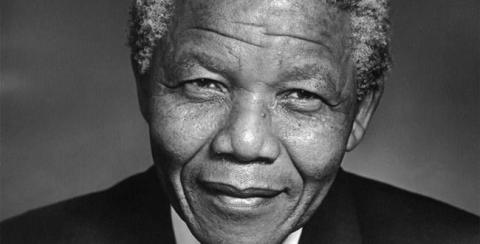Mandela was born in July 1918. While living in Johannesburg later, he became involved in anti-colonial politics.
In 1948, the government began implementing the policy of apartheid, which he would be a voice against. Although he was a man of non-violence, he co-founded the militant organization, Umkhonto we Sizwe, in 1961.
He was arrested in 1962 and sentenced to life in prison. However, an international coalition managed to get him released in 1990 while civil strife escalated throughout the country over apartheid policies.
He led negotiations with then-South African President F.W. de Klerk to abolish apartheid and establish multiracial elections in 1994. He won the presidency in that election and served South Africa from 1994-1999, when we chose to step aside.
Toward the end of apartheid, he managed to be a unifying figure to a nation that was in desperate need. As civil strife and violence increased, South Africa was on the verge of becoming like any other African nation: ripped apart by constant civil war and revenge against enemies.
Mandela called for peace and worked with the current government to bring about free elections. Even once he had won the presidency, he sought about not violence or revenge, but working together to build South Africa up and to make it a world player -- to have it be a shining light of democracy on a continent that knows darkness.
It was through the leadership of Mandela that South Africa stabilized. At a time when the nation could have gone one of two ways, he helped steer it the right way… a way to help end the divisions and hatred. He unified South Africans and made them see each other as countrymen and as neighbors.
Even after stepping down as president, he continued to speak out for peace at home, throughout the continent of Africa, and the rest of the world. He showed us all what could be accomplished if we started working together.In the United States, we revere the father of our country, George Washington. Though he led a war against a monarchical government, he still stepped aside when the task was complete. At a time when the new nation was about to split apart at the seems, it was Washington who stepped in to bring us back together as a people.
And yet, when the time came, he voluntarily stepped aside and gave up power again. He worked to keep us out of war and to unite us as a people and a nation. We see this type of person in the character of Nelson Mandela -- characteristics in a national leader that comes around once in a lifetime.
Though Mandela belonged to the people of South Africa, his life and legacy will reach far beyond the borders of that nation as it will encompass the globe. He has shown that we should not seek violence, revenge, or war. We must step up and do better. Through peace, we can achieve so much more and raise up humanity.
With his passing, the people of Africa (as well as all national leaders) should take note of the example that he set, and to set about doing what is right.
Today, the people of South Africa mourn the loss of the father of their modern nation and people around the world join them in their solemn hour for we have all lost a great and just man. However, though we are saddened by his loss, we keep his legacy alive. He set us up and pointed the way. Now we must take the torch and carry it forward.
To the people of South Africa, I say thank you for sharing him with the rest of us. He was an inspirational man… and one that we may never see again.
